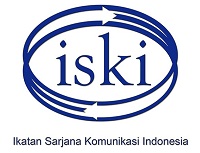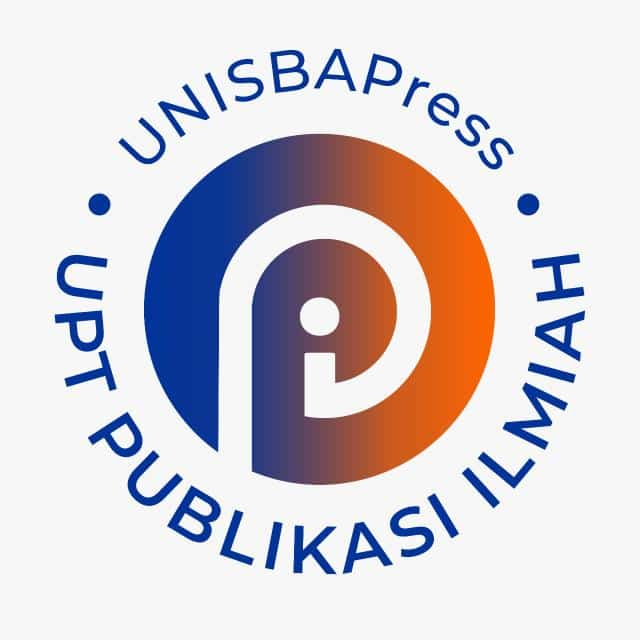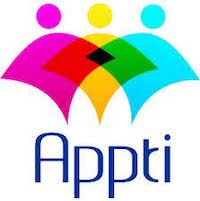Inter-Institutional Communication Model for Online Learning for Elementary School Students
DOI:
https://doi.org/10.29313/mediator.v16i2.2165Keywords:
Communication Model, Institution, Online Learning, Elementary School, Covid-19 PandemicAbstract
This study seeks to understand various communication events in the learning process holistically. The communication events in this paper include communication from the interpersonal level, computer-mediated communication, to organizational communication. This study explains the communication process from the human aspect (non-technical) and human relations with learning media technology (technical). This study seeks to answer how daily communication and communication media technology is vital in implementing online education for elementary school students. This study aims to offer an inter-institutional communication model that can be used to provide online education for students in elementary schools during disaster emergencies such as the Covid-19 pandemic. This study uses a focus group discussion (FGD) methodology with data collection techniques in interviews, field observations, and literature studies. This study uses data analysis in three-stage coding: open, axial, and selective. The subjects in this study were providers of elementary school (Sekolah Dasar) in Subdistrict (Kelurahan) Teluk Pucung, Kota Bekasi. This study finds that there is a need for intensification of communication from the daily level involving local stakeholders to resolve non-technical problems. The government needs to improve the communication media technology infrastructure and innovation in learning media technology for students who take online learning at the elementary level.
References
Abidah, A., Hidaayatullaah, H. N., Simamora, R. M., Fehabutar, D., & Mutakinati, L. (2020). The Impact of Covid-19 to Indonesian Education and Its Relation to the Philosophy of “Merdeka Belajar.” Studies in Philosophy of Science and Education, 1(1), 38–49. https://doi.org/10.46627/sipose.v1i1.9
Aguilar, S. J., Galperin, H., Baek, C., & Gonzalez, E. (2020). When school comes home: How low-income families are adapting to distance learning A report from the USC Rossier School of Education and the USC Annenberg School for Communication and Journalism. Aguilar, S. J., Galperin, H., Baek, C., & Gonzalez, E., (October). Diambil dari https://doi.org/10.35542/osf.io/su8wk
Adnan, M. (2020). Online learning amid the COVID-19 pandemic: Students perspectives. Journal of Pedagogical Sociology and Psychology, 1(2), 45–51. https://doi.org/10.33902/jpsp.2020261309
Agarwal, S., & Kaushik, J. S. (2020). Student’s Perception of Online Learning during COVID Pandemic. Indian Journal of Pediatrics, 87(7), 554. https://doi.org/10.1007/s12098-020-03327-7
Aisha, S., Firdaus, A. Z., & Mulyana, D. (2022). Islamic Education Teachers’ Adaptation in Digital Learning during the Covid-19 Pandemic. Mediator: Jurnal Komunikasi, 15(1), 91–103. Diambil dari https://ejournal.unisba.ac.id/index.php/mediator/article/view/9511
Awlaa, S. (2017). Peran Keluarga (Nuclear Family Dan Extended Family) Dalam Pengembangan Literasi Dini Anak Di Paud Surabaya. Dinamika Pendidikan, 53(9), 1689–1699.
Babbie, E. (2008). The Basics of Social Research. United States: Thomson Wadsworth.
Bartolomé, N. A., Zorrilla, A. M., & Zapirain, B. G. (2011). Can game-based therapies be trusted? Is game-based education effective? A systematic review of the Serious Games for health and education. Proceedings of CGAMES’2011 USA - 16th International Conference on Computer Games: AI, Animation, Mobile, Interactive Multimedia, Educational and Serious Games, 275–282. https://doi.org/10.1109/CGAMES.2011.6000353
Basar, A. M. (2021). Problematika Pembelajaran Jarak Jauh Pada Masa Pandemi Covid-19. Edunesia : Jurnal Ilmiah Pendidikan, 2(1), 208–218. https://doi.org/10.51276/edu.v2i1.112
Baber, H. (2020). Determinants of students’ perceived learning outcome and satisfaction in online learning during the pandemic of COVID19. Journal of Education and e-Learning Research, 7(3), 285–292. https://doi.org/10.20448/JOURNAL.509.2020.73.285.292
Besser, A., Flett, G. L., & Zeigler-Hill, V. (2022). Adaptability to a sudden transition to online learning during the COVID-19 pandemic: Understanding the challenges for students. Scholarship of Teaching and Learning in Psychology, 8(2), 85–105. https://doi.org/10.1037/stl0000198
Blau, P. M. (2015). Family, Socialization, and Interaction Process. by Talcott Parsons; Robert F. Bales; James Olds; Morris Zelditch,; Philip E. Slater. American Journal of Sociology, 118(3), 676–727.
Chang, H. S. (2020). Online Learning in Pandemic Times. Revista Romaneasca pentru Educatie Multidimensionala, 12(2Sup1), 111–117. https://doi.org/10.18662/rrem/12.2sup1/296
Cahyono, A. D. (2020). Membangun Komunikasi Efektif dalam Menentukan Keberhasilan Pembelajaran. Diambil dari https://p4tkboe.kemdikbud.go.id/p4tkboe/index.php?option=com_content&view=article&id=116:membangun-komunikasi-efektif-dalam-menentukankeberhasilan-pembelajaran&catid=28&Itemid=101
Coman, C., Țîru, L. G., Meseșan-Schmitz, L., Stanciu, C., & Bularca, M. C. (2020). Online teaching and learning in higher education during the coronavirus pandemic: Students’ perspective. Sustainability (Switzerland), 12(24), 1–22. https://doi.org/10.3390/su122410367
Denzin, N. K., & Lincoln, Y. S. (2005). The Sage Handbook of Qualitative Research. Routledge International Handbook of Qualitative Nursing Research (3rd ed.). New York: Sage Publication. https://doi.org/10.4324/9780203409527
Dirjen Pendidikan Tinggi. (2020). Buku Panduan Merdeka Belajar-Kampus Merdeka. Buku Panduan Merdeka Belajar-Kampus Merdeka. Jakarta.
Garcimartin, C. (2012). Defining Familial Relations within The Law: Nuclear Family vs Extended Family. International Journal of the Jurisprudence of the Family, 208, 85–109.
Giantika, G. G. (2020). Strategi Komunikasi Guru Dalam Upaya Meningkatkan Proses Pembelajaran Siswa SDN Tebet Barat 01 Jakarta Selatan Di Masa Pandemi Covid-19. Jurnal Komunikasi, 11(30), 143–150. Diambil dari https://ejournal.bsi.ac.id/ejurnal/index.php/jkom/article/view/8575
Goldberg, S. B. (2021). Education in a Pandemic: The Disparate Impacts of COVID-19 on America’s Students (hal. 1–61). Department of Education United States of America. Diambil dari https://www2.ed.gov/about/offices/list/ocr/docs/race394.html;
Goodnow, C. C. (2021). COVID-19, varying genetic resistance to viral disease and immune tolerance checkpoints. Immunology and Cell Biology, 99(2), 177–191. https://doi.org/10.1111/imcb.12419
Hernawati, R., Palapah, M. A. O., & Noviar, T. N. A. (2022). Communication Strategy Of Private University’s PR PractitionersTo Attract Students’ Interest In Time Of Covid-19 Pandemic. Mediator: Jurnal Komunikasi, 15(1), 78–90.
Irawan, A. W., Dwisona, & Lestari, M. (2020). Psyhological impacts of students on online learingdurung he pandemic covid-19. Konseli: Jurnal Bimbingan dan Konseling (E-Journal), 07(1), 53–60.
Katsaounidou, A., Vrysis, L., Kotsakis, R., Dimoulas, C., & Veglis, A. (2019). MATHE the game: A serious game for education and training in news verification. Education Sciences, 9(2). https://doi.org/10.3390/educsci9020155
Kemendikbud. (2020a). Panduan Penyelenggaraan Pembelajaran pada Tahun Ajaran dan Tahun Akademik Baru di Masa Covid-19. Kemdikbud.Go.Id. Diambil dari https://www.kemdikbud.go.id/main/blog/2020/06/panduan-penyelenggaraan-pembelajaran-pada-tahun-ajaran-dan-tahun-akademik-baru-di-masa-covid19
Kemendikbud. (2020b). Penyesuaian Keputusan Bersama Empat Menteri tentang Panduan. siaran Pers Kementerian Pendidikan dan Kebudayaan. Diambil dari https://www.kemdikbud.go.id/main/blog/2020/08/penyesuaian-keputusan-bersama-empat-menteri-tentang-panduan-pembelajaran-di-masa-pandemi-covid19
Kemendikbud. (2020c). SE Mendikbud: Pelaksanaan Kebijakan Pendidikan dalam Masa Darurat Penyebaran Covid-19 24 Maret 2020. Kementrian Pendidikan dan Kebudayaan.
Kim, D. K. D., & Kreps, G. L. (2020). An Analysis of Government Communication in the United States During the COVID-19 Pandemic: Recommendations for Effective Government Health Risk Communication. World Medical and Health Policy, 12(4), 398–412. https://doi.org/10.1002/wmh3.363
Lase, D., Zaluchu, S. E., Daeli, D. O., & Ndraha, A. (2020). Parents’ Perceptions of Distance Learning during Covid-19 Pandemic in Rural Indonesia.
Muslimin, A. I., & Harintama, F. (2020). Online Learning during Pandemic: Students’ Motivation, Challenges, and Alternatives. Loquen: English Studies Journal, 13(2), 60. https://doi.org/10.32678/loquen.v13i2.3558 https://doi.org/10.35542/osf.io/hfza7
Novianti, R., & Garzia, M. (2020). Parental Engagement in Children’s Online Learning During COVID-19 Pandemic. Journal of Teaching and Learning in Elementary Education (Jtlee), 3(2), 117. https://doi.org/10.33578/jtlee.v3i2.7845
Pratiwi, M. R., Boer, K. M., Dyatmika, T., & Yusriana, A. (2021). The Identification of Persuasive Educational Message About Covid-19 Issue in New Media. Mediator: Jurnal Komunikasi, 14(1), 1–15. https://doi.org/10.29313/mediator.v14i1.7663
R Rustina. (2014). Keluarga Dalam Kajian Sosiologi. Musawa, 6(2), 287–322.
Rachmawati, F. J. (2021). Mutasi Virus Covid-19 Berbahayakah? Diambil 25 Juni 2022, dari https://www.uii.ac.id/mutasi-virus-covid-19-berbahayakah/
Reddy, D. S. (2020). Pros and Cons of E-Learning by Children in Rural Areas During Lockdown Situation And Ways To Empower It. International Journal of Innovative Technology and Research, 7–9. Diambil dari https://core.ac.uk/download/pdf/327105039.pdf
Reimers, F., & Schleicher, A. (2020). Schooling disrupted, schooling rethought: How the Covid-19 pandemic is changing education. Oecd, 1–62. Diambil dari https://read.oecd-ilibrary.org/view/?ref=133_133390-1rtuknc0hi&title=Schooling-disrupted- schooling-rethought-How-the-Covid-19-pandemic-is-changing-education (accessed
Rideout, V., & Katz, V, S. (2016). Opportunity for all? Technology and learning in lower-income families (Vol. 88). New York: The Joan Ganz Cooney Center at Sesame Workshop. https://doi.org/10.1177/003172170608800314
Rulandari, N. (2020). The Impact of the Covid-19 Pandemic on the World of Education in Indonesia. Ilomata International Journal of Social Science, 1(4), 242–250. https://doi.org/10.52728/ijss.v1i4.174
Rutter, M. (1985). Family and School Influences on Cognitive Development. Journal of Child Psychology and Psychiatry, 26(5), 683–704. https://doi.org/10.1111/j.1469-7610.1985.tb00584.x
Sahputra, D., Muda, I., Hidayat, T. W., & Waridah. (2020). Ikatan Sarjana Komunikasi Indonesia ( ISKI ). Jurnal Komunikasi Ikatan Sarjana Komunikasi Indonesia, 5(1), 10–17.
in Elementary School. Widyagogik : Jurnal Pendidikan dan Pembelajaran Sekolah Dasar, 9(2), 183–190. Diambil dari https://journal.trunojoyo.ac.id/widyagogik/article/view/13808
Situmorang, E, L., & Purba, B, M, M. (2018). Online Learning and Its Challenges for Parents, (21), 1–9.
Subiakto, H. (n.d.). Internet untuk pedesaan dan pemanfaatannya bagi masyarakat The usage of internet for the village and villagers.
Sumadi, C. D., Hidayat, A., & Agustina, I. (2022). Literature Study: Analysis of Learning Facilities in the Pandemic Era on the Effectiveness of Online Learning
Sumbodo, B. A. A., Dharmawan, A., & Faizah, F. (2017). Implementasi Teknologi Internet Sebagai Solusi Pengentasan Masalah Komunikasi di Desa Nyamuk, Kecamatan Karimunjawa, Kabupaten Jepara. Jurnal Pengabdian kepada Masyarakat (Indonesian Journal of Community Engagement), 2(2), 189. https://doi.org/10.22146/jpkm.15654
Weitzel, A. R. (1975). The dyadic exchange: An exercise in teaching interpersonal communication. The Speech Teacher, 24(2), 162–164. https://doi.org/10.1080/03634527509378148
Wenzel, K., & Babbie, E. (2016). The Practice of Social Research. Teaching Sociology (Vol. 22). https://doi.org/10.2307/1318620
Downloads
Published
Issue
Section
License
Copyright (c) 2023 Aan Widodo, Moh. Rifaldi Akbar, Wa Ode Sitti Nurhaliza, Zahara Tussoleha Rony

This work is licensed under a Creative Commons Attribution-ShareAlike 4.0 International License.























